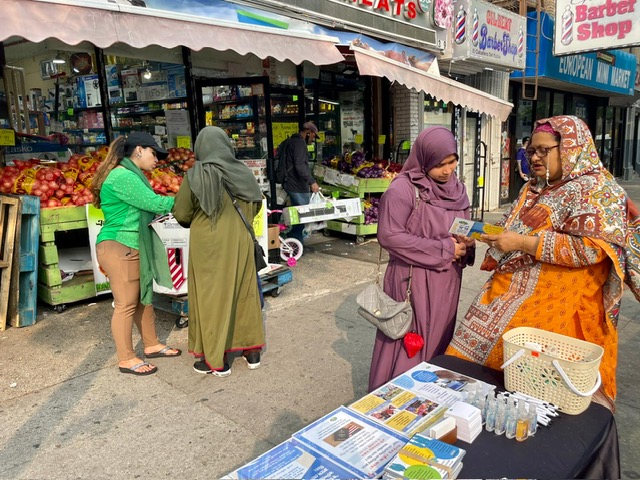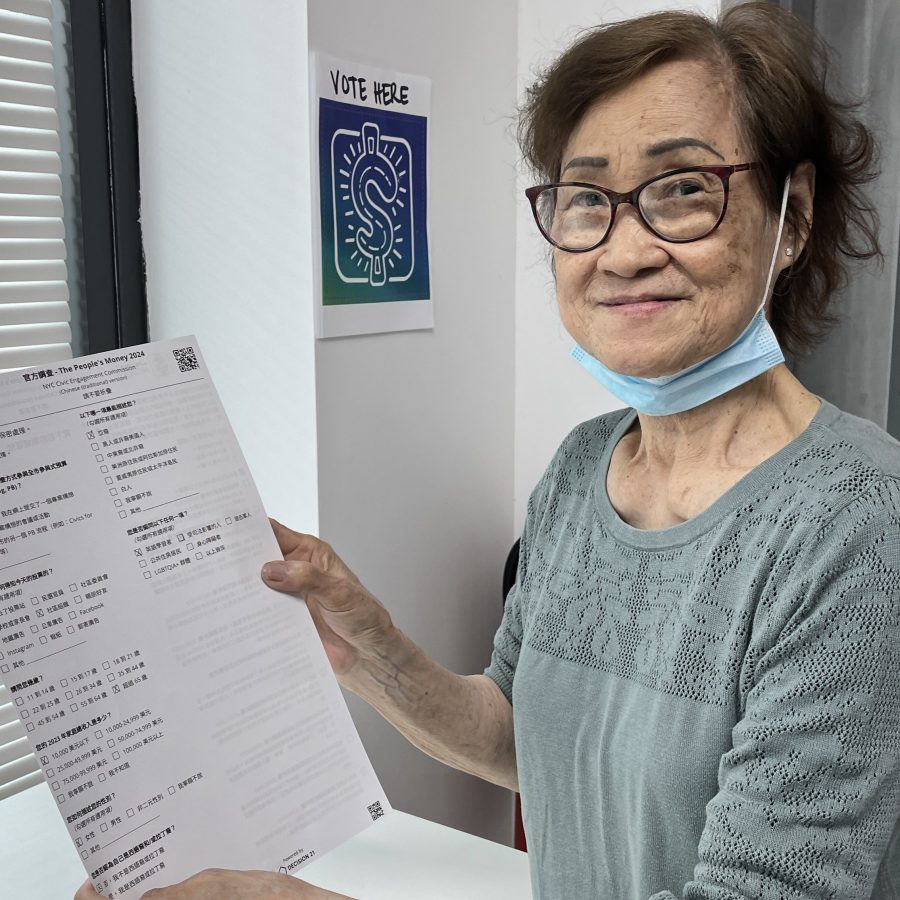Engaging people of all ages and backgrounds in voting and other civic activities is critical to a healthy democracy. Yet too often, the very communities that have been traditionally underrepresented face the greatest obstacles to fully participating in the democratic process.
In New York, this contributes to one of the lowest voter-turnout rates in the country. In fact, just one in four registered voters cast ballots in the city’s last mayoral election.
Rapidly shifting political parameters, including new electoral maps and voting schedule changes, can create obstacles for some voters—especially those who have difficulty accessing information online. To support equitable opportunities for civic engagement, The Trust is funding several nonprofits working to ensure that all New Yorkers have a voice in the political process that shapes our region.
“Our grantmaking supports nonprofits that have close relationships with communities that are typically overlooked in the democratic process,” said Eve Stotland, The Trust’s senior program officer for civic affairs and co-chair of GoVoteNYC, a funder collaborative at The Trust that supports nonpartisan efforts to increase voter participation across the city.

City neighborhoods where residents have limited opportunity for civic participation are often home to low-income immigrant communities. These neighborhoods tend to be overlooked by electoral campaigns—usually because of low voter turnout—perpetuating a cycle of disinvestment and disengagement.
Barriers to voting also can increase with age: More than 22 percent of New York State residents who are eligible to vote are 65 or older. Yet only 64 percent of New Yorkers in this age group voted in the last presidential and national midterm elections.
“This is my time”
Voter turnout among older New Yorkers is critical this year, as proposed budget cuts threaten already underfunded aging services. LiveOn NY is the membership organization for New York City’s nonprofit aging services providers and a leading voice for older New Yorkers. With a recent Trust grant, it is working with five older adult centers to provide civic literacy and engagement training in neighborhoods such as Flushing, Queens, and Coney Island, Brooklyn, which are home to South Asian, Indo-Caribbean, and Central American communities.
LiveOn NY also worked with the city’s Civic Engagement Commission to educate older adults about participatory budgeting. Unlike electoral voting, the city’s participatory budgeting process is open to all New Yorkers over the age of 11, regardless of immigration status, making it an important opportunity for those who are ineligible to vote to influence how the city allocates funding.
“When I hear participants say, ‘I’ve never done this before, but this is my time and this is how I’m spending my later years—really using my voice,’ it’s so gratifying,” said Allison Nickerson, LiveOn NY’s executive director. “It’s also an opportunity for people to learn a new skill and to get engaged in their community in a new way.”
Stronger civics classes
Young people in New York are eligible to register to vote at age 16. But less than 20 percent of 16- and 17-year-olds register, and many are unaware that they have the option to register in advance of their 18th birthday. Engaging future voters begins with a strong civics education, yet most of the region’s public middle and high schools do not offer a robust civics curriculum—and many offer none at all.
Trust grantee Generation Citizen is working to change that with its Community-Based Action Civics program. Students take a civics class and work in small groups to research an issue that is important to them—from unregulated cannabis shops to migration—propose a solution, and present their concerns to the appropriate elected official or government agency. Students also will participate in outreach efforts to register their peers and encourage voter turnout.
